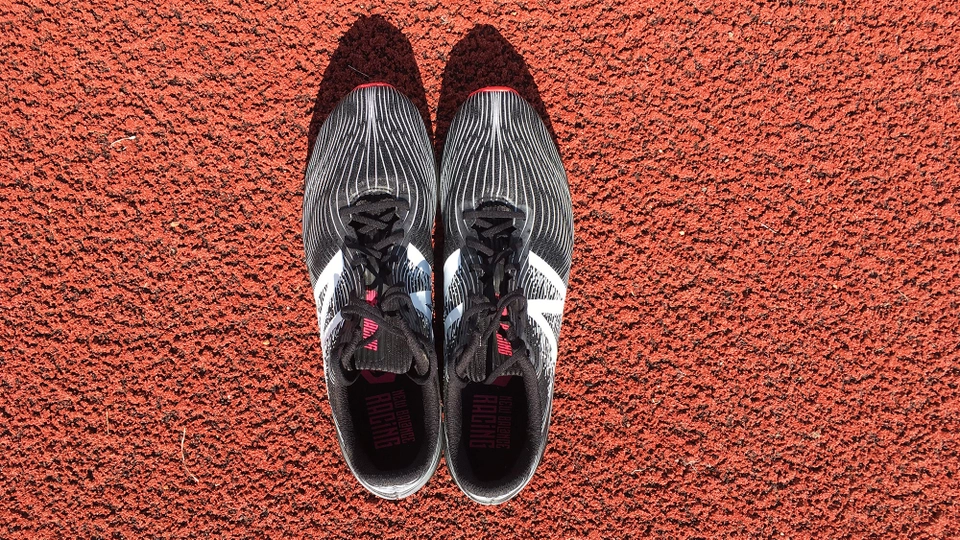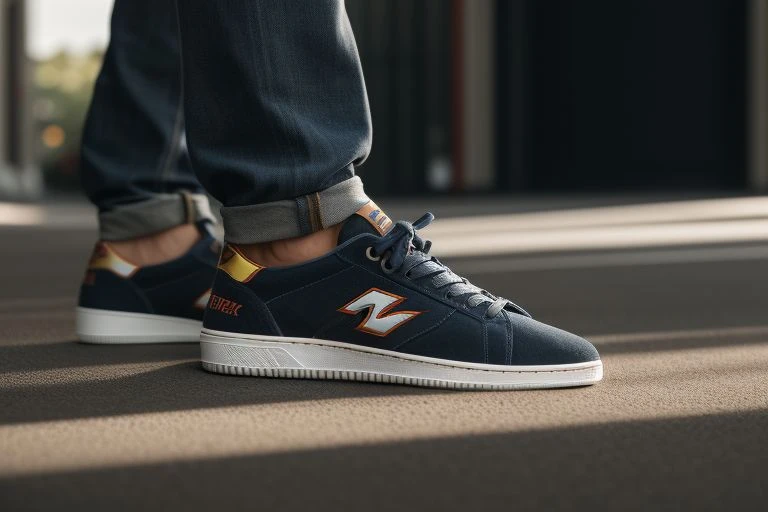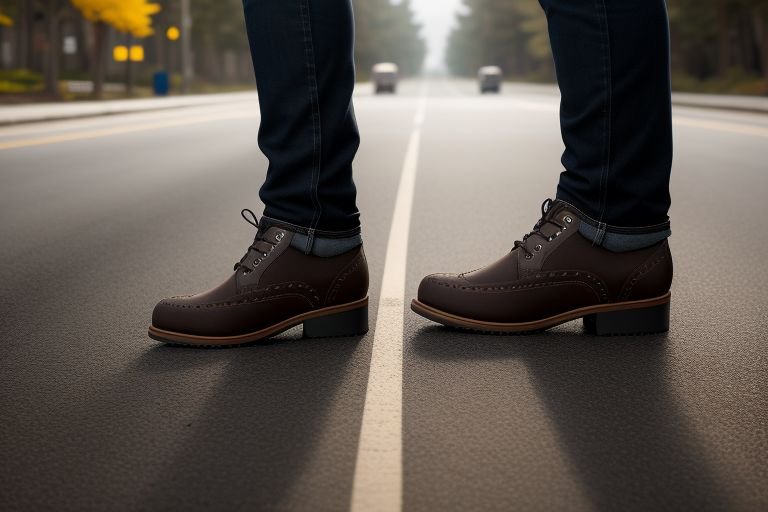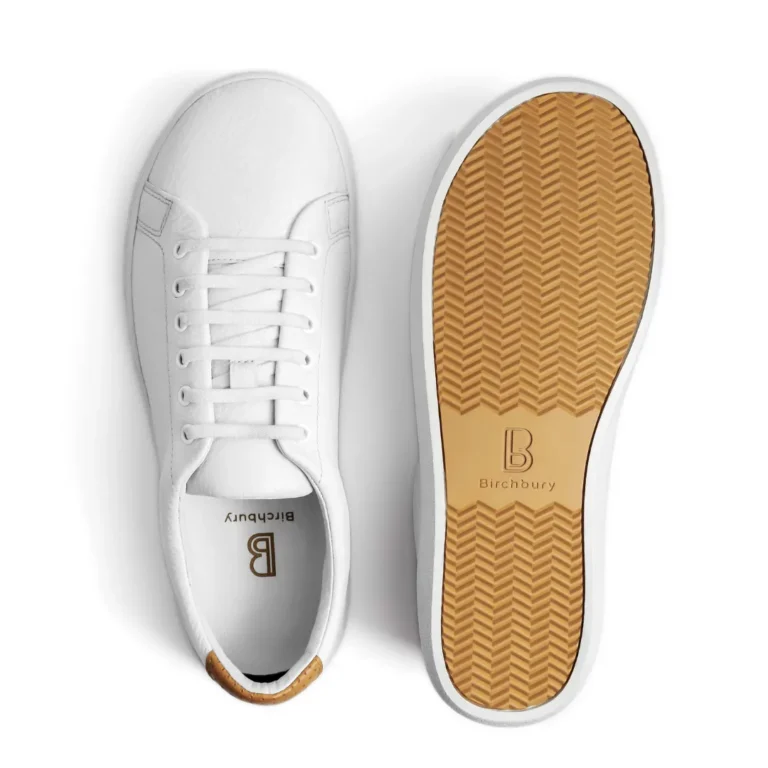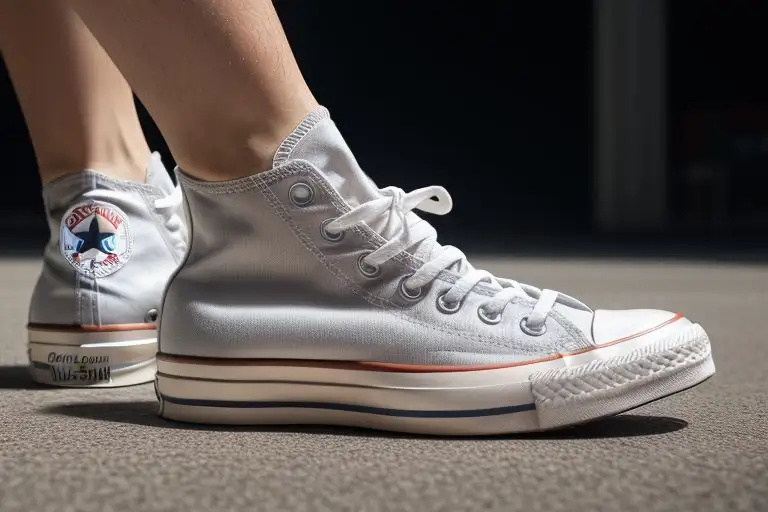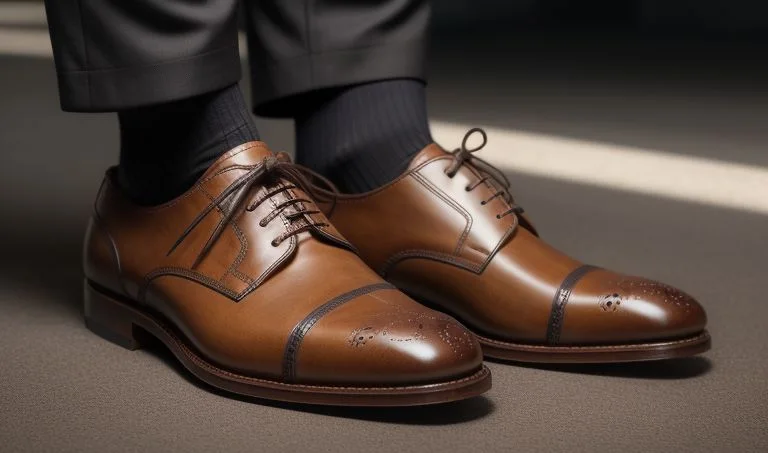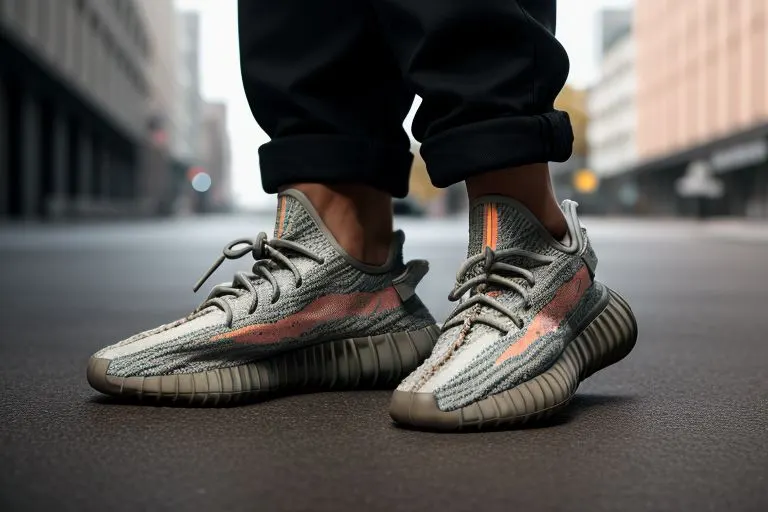Are shoes with pointed toes bad for you?
Are shoes with pointed toes bad for you: Are you a fan of shoes with pointed toes? We’ve all seen them, from trendy stilettos to sleek dress shoes. However, before you add another pair of pointed toe shoes to your closet, it’s essential to consider the ugly truth about these fashionable shoes and how they might affect your feet.
In this blog post, we’ll explore the potential risks of wearing pointed toe shoes and discuss what you can do to ensure your feet stay healthy and happy.
Table of Contents
What are Pointed Toe Shoes?
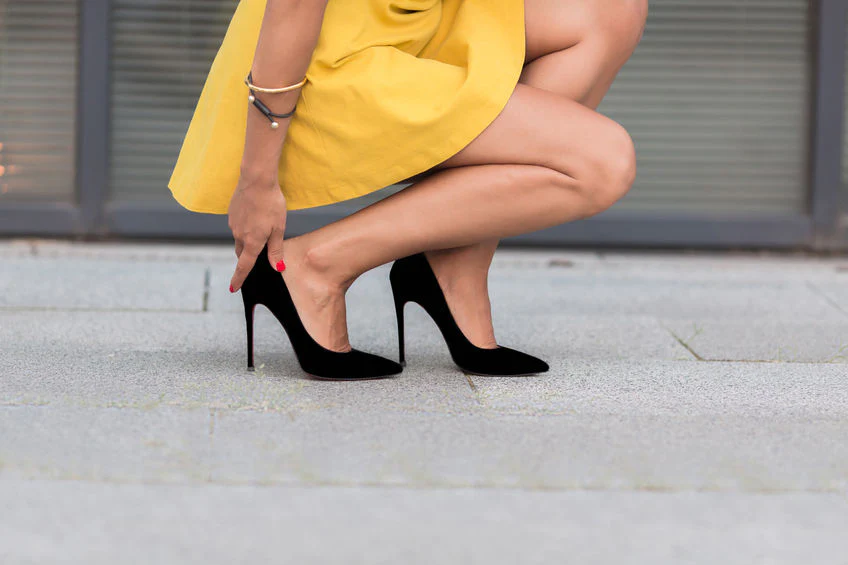
Pointed toe shoes, high-heels, or stilettos are popular footwear styles for both men and women. These shoes are designed with a pointed, triangular-shaped toe box that extends beyond the foot’s natural shape. They come in various materials, colors, and heel heights, ranging from a low kitten heel to a sky-high stiletto.
While pointed toe shoes may be fashionable, they are only sometimes good for your feet. The pointed shape of the toe box can put pressure on the toes and the ball of the foot, leading to various foot problems. Additionally, the high heel of many pointed toe shoes can alter the foot’s natural alignment and put even more strain on the feet, ankles, and knees.
Despite their popularity, pointed toe shoes are not practical for everyday wear. In fact, wearing them too often can lead to serious foot problems over time. Understanding the negative impact these shoes can have on your feet is essential to make informed decisions about what you wear. In the next section, we’ll look at some of the foot problems caused by pointed toe shoes.
The Negative Impact of Pointed Toe Shoes on Feet
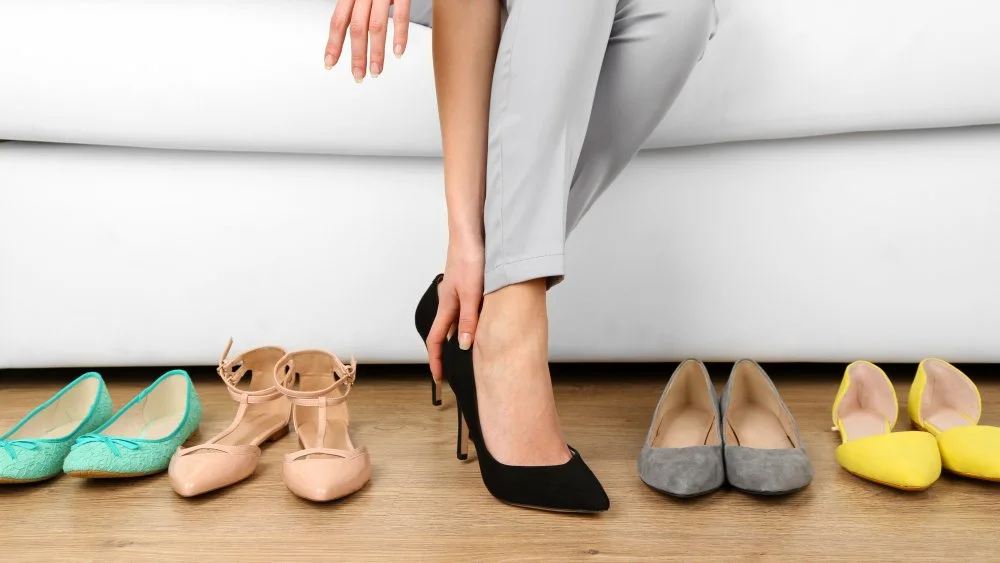
If you’re a fan of pointed toe shoes, consider considering your choice of footwear. While they look stylish and sleek, they can harm your feet. Here are a few reasons why:
1. Toe Deformities:
Pointed toe shoes put a lot of pressure on your toes, causing them to bend unnaturally. This can lead to toe deformities like hammertoe, claw, or mallet toe. These conditions can be painful and difficult to correct.
2. Blisters and Calluses:
The narrow toe box of pointed toe shoes can cause friction and pressure on your toes, leading to blisters and calluses. These can be uncomfortable and unsightly and even become infected if not properly treated.
3. Foot Pain:
Wearing pointed toe shoes for extended periods can lead to foot pain. This is because your toes are cramped together, and your feet aren’t able to move or flex naturally. This can cause strain on your feet and lead to pain in your arches, heels, or toes.
4. Ingrown Toenails:
The pressure from pointed toe shoes can also lead to ingrown toenails. This occurs when the nail grows into the skin on the side of the toe, causing pain and discomfort. Ingrown toenails can become infected if not properly treated, leading to even more pain and discomfort.
While it might be tempting to wear pointed toe shoes for fashion’s sake, the potential negative impact on your feet is not worth it. Choose footwear with a more comfortable toe box and proper arch support to keep your feet healthy and pain-free.
Problems Caused by Pointed Toe Shoes
While they may look fashionable, pointed toe shoes can cause many problems for your feet. Some of the most common issues can arise from wearing them.
1. Pointed toe
Pointed toe shoes can cause the big toe to be pushed towards the other toes, which can lead to the development of bunions. This painful bony growth can make wearing shoes and walking comfortably challenging.
2. Hammer Toes
Hammer toes occur when the toe joints become bent due to pressure from tight shoes. Pointed toe shoes can exacerbate this problem and lead to a painful and unsightly deformity.
3. Corns and Calluses
Pointed toe shoes can create pressure points on the feet, developing corns and calluses. These rough patches of skin can be painful and challenging to treat.
4. Plantar Fasciitis
Wearing pointed-toe shoes can also increase the risk of developing plantar fasciitis. This condition is caused by inflammation of the band of tissue that connects the heel bone to the toes. It can cause heel pain and make it difficult to walk.
5. Achilles Tendonitis
Pointed toe shoes can also cause strain on the Achilles tendon, which can lead to Achilles tendonitis. This condition causes pain in the back of the heel and can make it difficult to walk or exercise.
Pointed toe shoes can cause a lot of problems for your feet. To avoid these issues, it’s essential to wear proper footwear that provides enough space for your toes to move and offers good arch support. By doing so, you can keep your feet healthy and pain-free.
Proper Footwear to Protect Your Feet
So, we know that pointed toe shoes can wreak havoc on our feet, but what can we do to protect them? Fortunately, plenty of footwear options offer both style and comfort without sacrificing the health of our feet.
First, opt for shoes with a rounded or square toe box. These styles provide ample space for your toes to wiggle and move, reducing the risk of toe deformities like hammertoes and bunions. Additionally, choose shoes with a wider toe box that can accommodate any swelling or discomfort throughout the day.
When it comes to heel height, lower is better. High heels, particularly those with a pointed toe, put excessive pressure on the ball of the foot, leading to a host of issues such as metatarsalgia (pain in the ball of the foot) and Morton’s neuroma (thickening of tissue around the nerves of the foot). Stick to a heel height of no more than two inches and choose styles with a sturdy, supportive base to ensure proper weight distribution.
Another factor to consider is arch support. Our arches can collapse over time without proper permission, leading to conditions such as flat feet and plantar fasciitis. Look for shoes with built-in arch support or custom orthotics to ensure the best fit for your unique foot structure.
Lastly, prioritize comfort and fit above all else. No matter how fashionable a pair of shoes may be, they’re not worth it if they cause pain or discomfort. Feel free to try on several sizes or styles and take the time to break them in before wearing them for extended periods.
In summary, pointed toe shoes may be tempting for their style and elegance, but they’re not worth sacrificing the health of our feet. By choosing footwear with a rounded toe box, lower heel height, proper arch support, and prioritizing comfort and fit, we can keep our feet happy and healthy while still looking fashionable.
FAQs
1. Can pointed toe shoes cause permanent damage to my feet?
While they may not necessarily cause permanent damage, wearing pointed toe shoes for extended periods can lead to chronic foot problems and discomfort.
2. Can I wear pointed toe shoes occasionally without any problems?
Wearing pointed-toe shoes occasionally is unlikely to cause any long-term issues. However, if you already have foot problems, it’s best to avoid them altogether.
3. Are any pointed toe shoes better for my feet?
If you must wear pointed-toe shoes, opt for ones with a broader toe box and ample support. Additionally, look for shoes made of high-quality materials that allow your feet to breathe.
4. What are some common foot problems associated with pointed toe shoes?
Common foot problems from wearing pointed toe shoes include blisters, calluses, hammertoe, and ingrown toenails.
5. Can I still wear stylish shoes without sacrificing comfort and foot health?
Absolutely! Plenty of stylish shoe options prioritize comfort and foot health, such as supportive sneakers, cushioned flats, and arch-supporting sandals. Look for shoes with a wide toe box, good arch support, and shock-absorbing soles.
Conclusion
There are better choices than pointed toe shoes for your feet. These shoes’ narrow and tight design can lead to various issues, including bunions, hammertoes, and nerve damage. If you absolutely must wear pointed toe shoes for a special occasion, limit your time in them and opt for a broader, more comfortable pair for everyday wear.
Remember, your feet are the foundation of your body, and taking care of them is essential for your overall health and well-being. Choose proper footwear that fits well and supports your feet to keep them happy and healthy for years.
Also Read –
What Does GS Mean for Shoes? Find Out
Does GOAT Sell Fake Shoes? Find out
What are reps in shoes? Know More!
How To Tighten Hey Dude Shoes? Find Out!
What Does PS Mean in Shoes? Find Out!
Why Golden Goose Shoes Are Expensive?
How to Clip In Peloton Shoes: Step By Step Guide
How To Walk Without Creasing Shoes?
Does Flight Club Sell Real Shoes? Find Out!
Does Nike Make Steel Toe Shoes?
Do Vans make wide shoes? Find Out!
How To Clean White Shoes That Turned Yellow?
How To Take Off Peloton Shoes? Step By Step Guide
What Does UA Mean In Shoes? Find Out!
Can You Wear Basketball Shoes For Volleyball?
How To Keep Leather Shoes From Creasing?
How To Soften The Back Of New Shoes?
How To Stop Shoes From Squeaking On Tile?
How To How To Get Creases Out Of Shoes Without An Iron?
What Color Shoes Go With Olive Green Dress?
How To Make Climbing Shoes Not Smell?
How To Get Yellow Bleach Stains Out Of White Shoes?
How To Get Cigarette Smell Out Of Leather Shoes?
What Color Shoes Do You Wear With A Champagne Dress?

